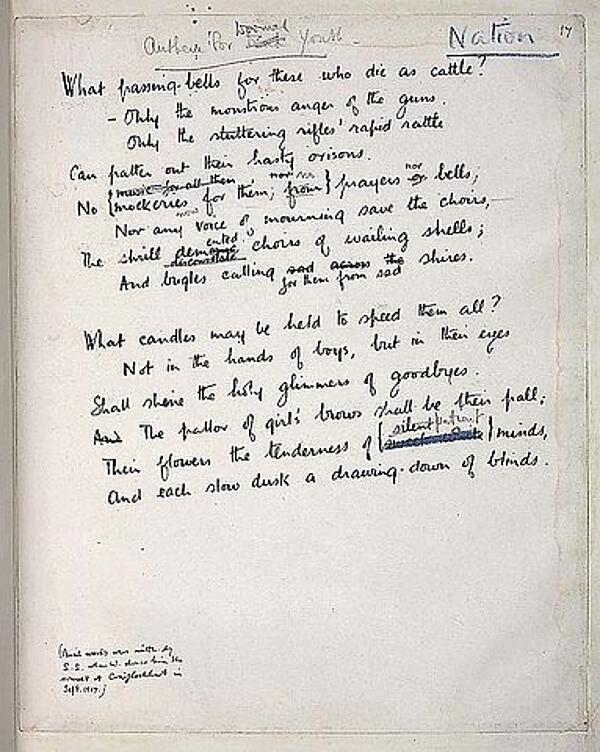Poetry and World War One
World War One, more than any other war, is strongly linked with war poetry. Poems were written by men including Wilfred Owen, Siegfried Sassoon, Rupert Brooke and Robert Graves, among others, and their work is considered by many to be as poignant today as it was at the time.
Many believe that the reason for the outpouring of poetry during the First World War is the sheer scale and horror of the it, which is thought to have provided the talented writers of the time with all the fuel they needed as they juggled trench warfare with their writing.
Historians believe that another reason why poetry was such a big part of the war was the fact that it was widely believed the war would be over by Christmas 1914. This meant that those who lasted beyond that and those who joined after the Christmas period not only had their hopes shattered, but also had to face the stark reality of life in the trenches, which offered a constant reminder of horrors of war.
It was this lifestyle that spurred on the poets, who put onto paper the feelings of many of the soldiers suffering on the Western Front.

It is often wrongly believed that most war poets were officers from wealthy backgrounds. In fact, the war poets came from a variety of backgrounds, with some having a comfortable upbringing and others coming from more humble backgrounds. Some also won medals for their bravery and gallantry, while others went unnoticed on the battlefield. This variety of backgrounds means that their poetry provides us with a clear idea of the impact of war on those who served, particularly as they were forbidden from providing any accurate details when writing home.
The poets also came from a variety of religious backgrounds. While the majority were of a Church of England background, three of the more famous poets including Sassoon, Rosenberg and Frakau were Jewish. Despite their faiths, many of the war poets were united in the fact that they started to question the idea of God - asking themselves how such horrors could take place if a God existed.
Most poets were also influenced by the ‘Georgian’ poetry movement, the accepted leader of which was Edward Marsh. He was the patron of a number of young poets who were considered to be modern and innovative due to their ‘Georgian’ style. They also had support from writers including T S Elliott and were seen to be more relevant than the late Victorian poets. However, many of the war poets were keen readers of classic poetry from Ancient Rome and Greece, as well as William Shakespeare.
MLA Citation/Reference
"Poetry and World War One". HistoryLearning.com. 2026. Web.
